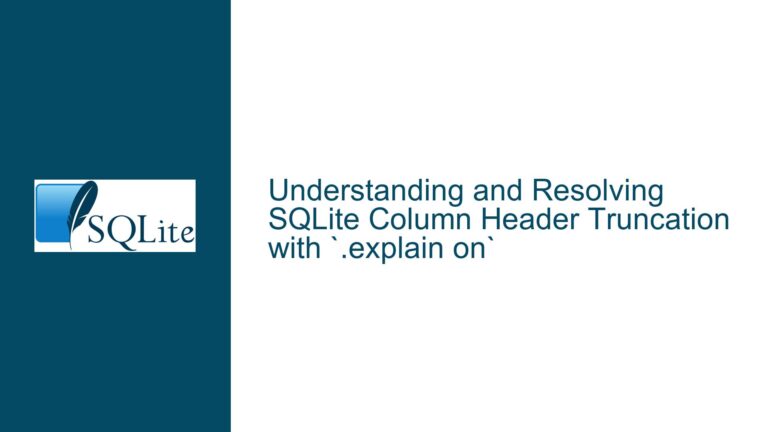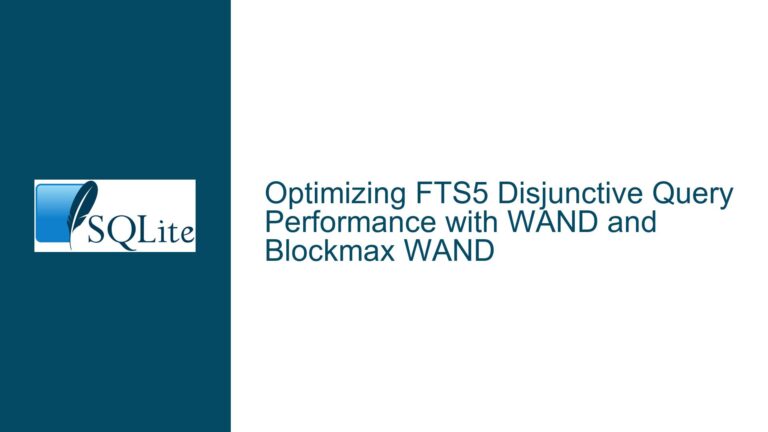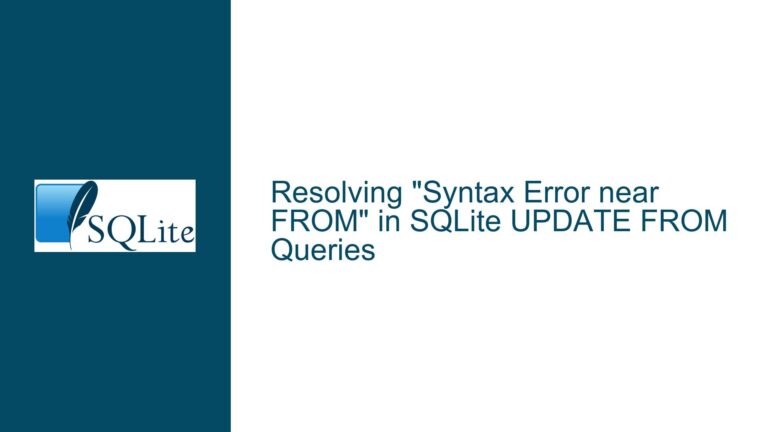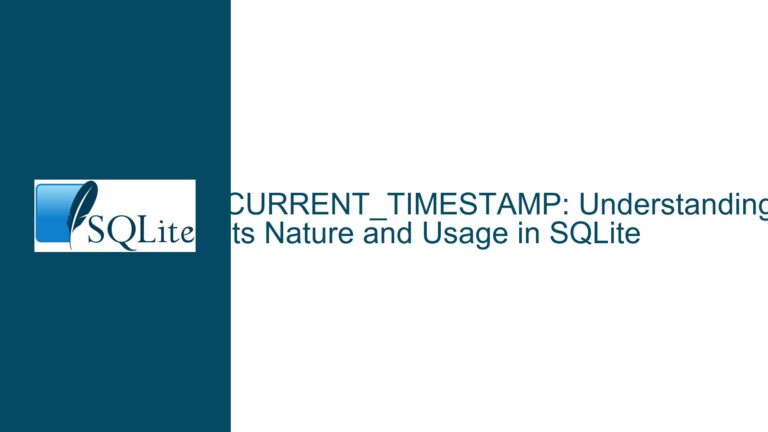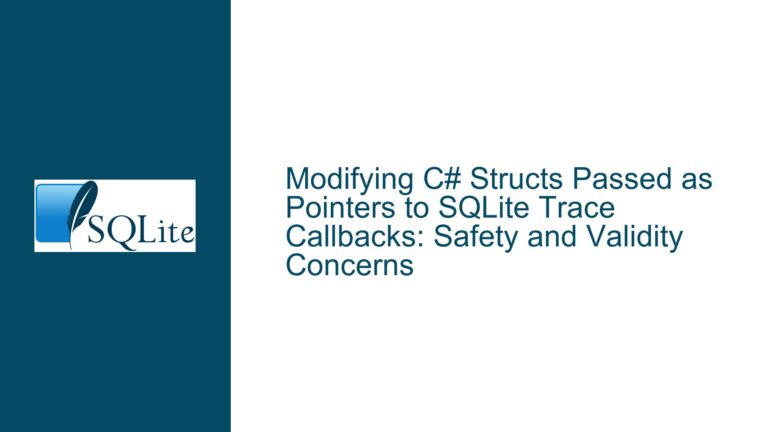Handling Partial Column NULL on Delete in SQLite Composite Foreign Keys
Understanding Composite Foreign Key Constraints with Partial ON DELETE SET NULL Composite Foreign Key Behavior and Limitations in SQLite SQLite enforces referential integrity through foreign key constraints, but its implementation differs from PostgreSQL when handling partial column updates during ON DELETE operations. In the scenario where a composite foreign key (spanning multiple columns) requires only…

